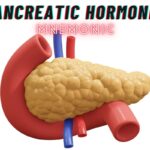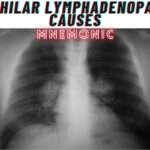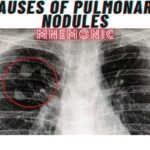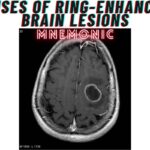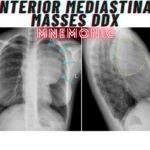You’re reviewing a CT chest (inspiratory and expiratory) and you notice that patchy areas of lung refuse to deflate like the last balloons at a sad party. 🎈
Congratulations, you’ve spotted air trapping in lung fields — the classic radiological whisper that something’s gone rogue in the small airways.
But before we call it “just post-viral” and move on, let’s BOAST-CV our differentials like a well-read FCPS candidate with a solid grip on high-yield radiology.
🧠 Mnemonic Table: “BOAST CV”
| Letter | Cause | Clinical Context |
|---|---|---|
| B | Bronchiolitis (esp. Constrictive/Obliterative) | Post-viral, post-transplant, or post-inhalation. The small airways said, “We’re done here.” |
| O | Obliterative airway disease | Seen in chronic graft rejection or after infections like adenovirus. Basically, your bronchioles just ghost you. |
| A | Asthma | Classic reversible airway obstruction. But during an attack? That air is going nowhere. 😤 |
| S | Sarcoidosis | Granulomas clogging up the bronchial tree. Non-caseating drama. |
| T | Tracheobronchomalacia / Toxic inhalation | Think of those exposed to industrial smoke or prolonged ventilation. Airway walls become floppy like overcooked spaghetti. 🍝 |
👨⚕️ Clinical Vignette: The Case from Mashkel (Balochistan)
A 40-something truck driver from Mashkel, non-smoker, came in with worsening dyspnea post-COVID. CXR was normal-ish. CT inspiratory-expiratory series showed classic mosaic attenuation with air trapping.
Dr. Basit Khan looked at the report and said, “Welcome to the post-viral bronchiolitis club. We should start handing out loyalty cards.”
Bronchoscopy later confirmed constrictive bronchiolitis — and just like that, he became another long-COVID lung story.
Crucial tips
- Expiratory CT is gold for air trapping. Don’t settle for a vanilla inspiratory scan. 🍦
- In transplant patients (especially post-lung or post-BMT), air trapping = red flag for bronchiolitis obliterans.
- In kids, especially with a recent viral illness + wheeze → suspect post-viral small airway disease.
- Always correlate with PFTs: look for obstructive patterns, air trapping, and elevated residual volumes.
Happy learning, folks! 🙂
Dr. Aurangzaib Qambrani
MBBS, PLAB, MRCP-UK
Sheikh Khalifa Bin Zayed Hospital, Quetta

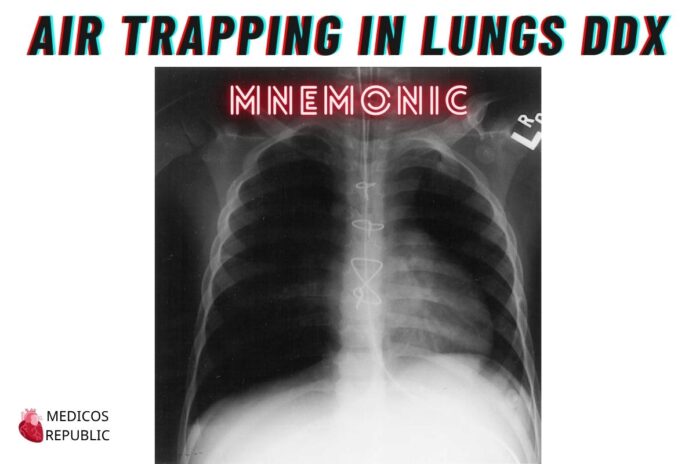
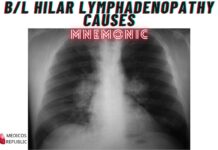
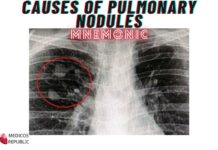
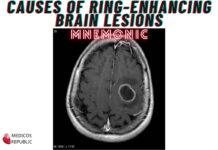
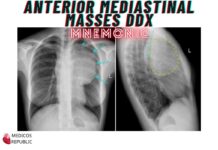
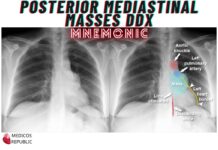
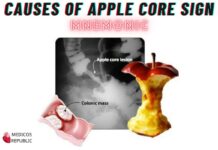

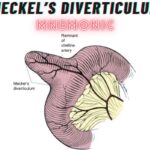
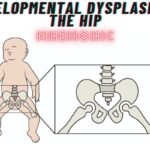

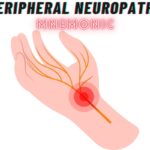

![Gerstmann Syndrome Features Mnemonic [Easy-to-remember] Gerstmann Syndrome Features Mnemonic](https://www.medicosrepublic.com/wp-content/uploads/2025/06/Gerstmann-Syndrome-Features-Mnemonic-150x150.jpg)
![Cerebellar Signs Mnemonic [Easy to remember] Cerebellar Signs Mnemonic](https://www.medicosrepublic.com/wp-content/uploads/2025/06/Cerebellar-Signs-Mnemonic-150x150.jpg)
![Seizure Features Mnemonic [Easy-to-remember] Seizure Features Mnemonic](https://www.medicosrepublic.com/wp-content/uploads/2025/06/Seizure-Features-Mnemonic-1-150x150.jpg)
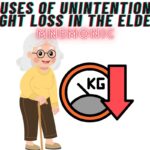
![Recognizing end-of-life Mnemonic [Easy to remember]](https://www.medicosrepublic.com/wp-content/uploads/2025/06/Recognizing-end-of-life-Mnemonic-150x150.jpg)
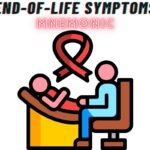
![Multi-System Atrophy Mnemonic [Easy-to-remember] Multi-System Atrophy Mnemonic](https://www.medicosrepublic.com/wp-content/uploads/2025/06/Multi-System-Atrophy-Mnemonic-150x150.jpg)
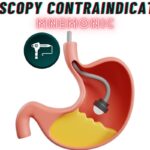
![How to Remember Southern, Northern, and Western Blot Tests [Mnemonic] How to Remember Southern, Northern, and Western Blot Tests](https://www.medicosrepublic.com/wp-content/uploads/2025/06/How-to-Remember-Southern-Northern-and-Western-Blot-Tests-150x150.jpg)
